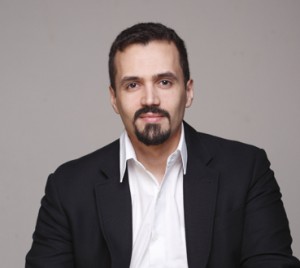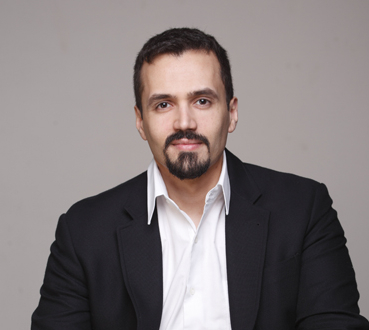
Christmas Eve. New Year’s Eve mass. A wedding. None of these should turn into a funeral – but that is exactly what has happened in Egypt. The most recent round of violence, the targeting of a Coptic wedding procession in Giza, left four people dead and around a dozen wounded. The response is likely to be pathetically predictable – a deepening of the rhetoric claiming a ‘war on terror’; a round of sincere, but rather useless, proclamations of the ‘unity of Christians and Muslims’ in Egypt; and then… nothing. Until, that is, the next time.
That is Egypt. It is not an Egypt that is inevitable – but it is an Egypt that is easy. The Egypt that Egyptians moan about when they tell each other, “Oh, this is so un-Egyptian, and how wonderful it is that we all live as one people” is not an imaginary Egypt. But it is an Egypt that requires work. Instead of working for that, there are others that work for another Egypt – and those that are repelled by such a skewed vision of what Egypt ought to be do not seem to be taking it seriously enough.
In every society, there are demographic minority communities – and Egypt is no exception. By and large, it is rare to find a society (if at all) that does not entertain stereotypes about those communities – regardless how long they have been in their midst. Only the most enlightened of human beings fail to thrive on identity politics – and identity politics thrive best when people have another identity to define themselves against. To try to eliminate all stereotypes is laudable – but hardly realistic.
That is not the point. In Egypt today, as it has been for quite some time, it is not about stereotypes for Coptic Egyptians – it is about hate speech, and the security services. Hate speech in Egypt, particularly over the last few years (but certainly not limited to that) is not just common – it’s become mainstreamed in an awesomely abysmal fashion. The revolutionary burst of civil society energy in 2011 showed Egyptians what they could be like at their best – see Tahrir Square during those 18 days, and the inter-religious harmony that was clear – but it also opened the gateway for far less savoury elements to emerge.
Those unsavoury elements do not deserve to simply be counted among the most radical of Islamist actors in Egypt. They do, of course, bear a good deal of responsibility for that type of discourse – even if they are not themselves violent (and on this point, it varies). Hate speech from non-violent preachers allowed for an incredibly violent lynching of Shi’i Egyptians in June this year, for example – discourse alone can be dangerous. Radical Salafi preachers for far longer have promoted such discourse, and they’ve not been held to account for it.
They, at least, were marginalised – but in the past year, some less radical, albeit devastatingly damaging, Islamist personalities have hardly helped matters. During the Ittahidiya protests last year, it was no less a personality than the Muslim Brotherhood’s Mohammed Al-Beltagy who claimed that “60% of the protesters are Christian” – patently false, but feeding into a discourse of hateful populism. This was at a time when the Muslim Brotherhood was in power. When out of power, the Muslim Brotherhood-controlled stage at the Rabaa sit-in was replete with hateful discourse vis-à-vis Christians at large, for their purported supported of the military overthrow of Mohammed Morsi. Not all Islamists favour this kind of discourse – but far too many prominent ones do. This discourse, of course, failed to recognise that the overwhelming majority of those who supported the coup were, in fact, Muslims – not Christians.
Since the ouster of Morsi, churches, priests and ordinary Christians have been targeted – and one cannot simply put the anti-Christian discourse that has been allowed to perpetuate itself on the side when considering that. Egyptians at large have known that as well – the Tahrir Trends project indicates that 83% of Egyptians believe the problem of tension between religious groups is either a very serious or somewhat serious problem. The question is: what to do about it?
There are three measures that are vital. The first is on the level of positive discourse itself, which is necessary from the broader Muslim religious establishment. To its credit, the Al-Azhar establishment’s leadership has been clear on promoting positive messages in this regard. Nevertheless, it is not sufficient for the pre-eminent authorities of the Muslim canon to give speeches lauding positive inter-religious relationships when things go awry – but to ensure that that such sentiments feed into regular sermons, as well as the training and educating of new members of the religious establishment.
Much of that would take place anyway if educational standards were renewed within the religious educational sector – but it needs to be focused upon. That sort of focus also needs to have an effect within wider educational structures – what does the average Muslim Egyptian child really know about the Coptic community that he or she lives with and among? What can be done in wider educational structures to assure cohesion and cohesiveness in society? This is a question that needs to be addressed, critically.
None of that, however, is going to be particularly useful without considering the legal framework within which freedom of speech operates in Egypt. Controversial though it may be, hate speech and incitement to violence should never be considered as ‘protected speech’ – and ought to be legally circumscribed. Finally, the security sector needs to take responsibility for not simply responding to such crimes such as what happened on Sunday night – but in utilising its resources to prevent such crimes by appropriate intelligence gathering, cracking down on the easy supply of weaponry in Egypt, and, where necessary, providing extra resources to protect vulnerable institutions. That church, for example, used to have a guard outside of it – it hasn’t had one since late June. Perhaps it would not have made a difference – but that needs to be evaluated, as opposed to simply assumed.
Here is the rump, however. The above items are not earth shattering ones– but they require deep, more structural reforms to take place. Al-Azhar needs to root out, within its establishment, heterodox interpretations of the faith that promote such hateful rhetoric, rather than simply reacting to them. Legal regimes relating to hate speech can easily be abused if judicial reform, ensuring complete impartiality and political independence, is not instituted – and that sort of reform is not seriously being discussed at present. The security sector is in dire need of huge reform and restructuring – and it is not getting it. On the contrary, it is getting a blank cheque.
As with many things, the problems with Egypt do not come down to not knowing the correct solutions – but having the political will to apply them. It is not that Egyptians are incapable of doing better on these issues – that’s preposterous and denies history. It is that the leadership they have permitted to rule over them has consistently, and constantly, failed them. Until that is resolved, Sunday’s tragedy will not only go unpunished, but is likely to be repeated, again and again. All the crosses encased in crescents, with all the signs declaring “Egyptian Christians and Muslims are one”, will do nothing to obviate that fact.



